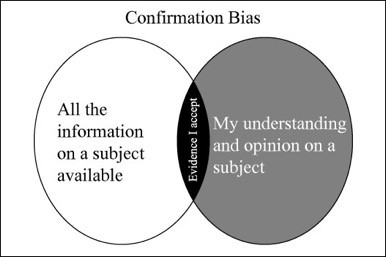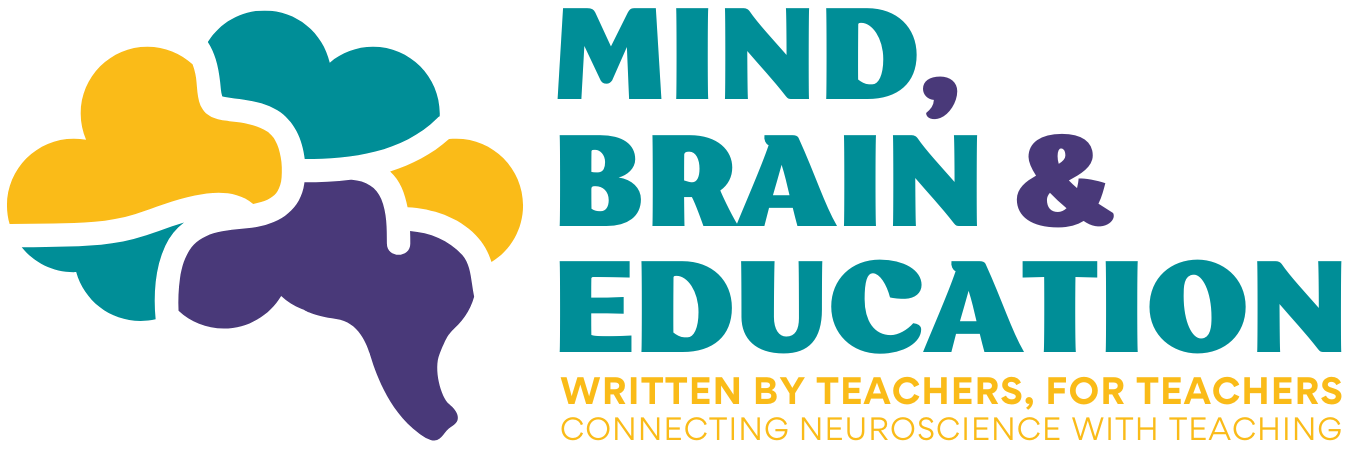Confirmation bias. What is that? How can it impact our lives? How can we avoid it?
The definition of confirmation bias in social psychology is observations of others based on individual prejudices and collecting only information fitting those prejudices, thereby reinforcing your own preconceptions. This happens everywhere in our society. People look for information to make sure what they think is true. Likewise, people tend to disregard evidence that is counter to their views and rarely try to seek it out. For this reason, adjustments to a view are made only with information that reinforces the initial judgment, and help people assume, “My ideas are NOT wrong.” In other words, confirmation bias is the tendency to look for, and accept, information that confirms our already held beliefs.

This is what is known as a logical fallacy, or a way of thinking that precludes good logic and strays into the realm of bad arguments and unsupported beliefs. This way of thinking is dangerous as it can lead us into areas of information that are increasingly erroneous or manipulative (or both!).
During the 1960s, Peter Cathcart Wason, a cognitive psychologist, conducted experiments later known as the Wason’s Rule Discovery Test. During these experiments, he showed that people have a tendency to gravitate toward information that confirms their existing beliefs. If we are not at least a little apprehensive of our belief in a piece of information, it can be used to further someone else’s agenda. When someone cherry picks information and presents it to you to make you feel good, it reinforces your beliefs and pushes you into acting or thinking in a way that may not be in your, or society’s, best interest.
During an election season, as an example of a type of confirmation bias that almost everyone may fall prey to from time to time, people tend to pursue positive information that paints their candidates in a virtuous light. They will also look for information that shows the opposing candidate in a negative light. Take this situation, for example: Steve likes candidate A for an elected position. He feels that candidate A is the best person for the job because of his candidate’s business experience. Susan likes candidate B because this candidate has a lot of experience in the political field. Steve, will actively seek out information that reinforces the strengths of his candidate while ignoring (or downplaying) information that either supports the opposite candidate as being worthy or casts doubt on Steve’s candidate being less than perfect. Susan, doing the same, will actively seek information that supports her views on her candidate and ignore or downplay information that does not. Both individuals are engaging in confirmation bias. While being ignorant is never a good thing (despite the related “bliss”), this also opens both people in the example up to being manipulated by the media with campaign ads or news stories that are biased.

In short, confirmation bias is a logical fallacy. You can learn about many other logical fallacies in an excellent podcast series called, “You are Not so Smart.” As the name implies, it aims to help us realize that much of what we think as human beings is in some way flawed. While this podcast is most certainly not casting the first stone, they are giving information in a fun and informative way. They bring out the good and bad of how our minds work and make it not only palatable, but enjoyable!
Avoiding confirmation bias is, thankfully, just as easy as falling prey to it. By actively questioning our understanding of something, or looking for information that seeks to disprove a belief we hold, we can then attack our closely held opinions head on. In a day and age of misinformation and misdirection, avoiding logical fallacies, like confirmation bias, has become extremely important.

James D. Dunn is a Junior Associate Professor at Tokai University and the Coordinator of the JALT Critical Thinking SIG. His interests overlap both critical thinking and the brain as he is currently researching the impact of higher-order thinking skills training on brain activity in language students. He can be reached at: [email protected]

Hiroshi Nakagawa is an English instructor at Tokai University. He completed a Doctorate of Education, specializing in ESL methodology and second language acquisition from North Central University, in Arizona. His research has involved teacher perception and receptiveness of the sheltered instruction observation protocol (SIOP) model within a Japanese university context.

